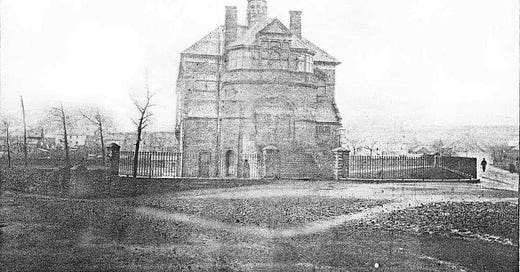Stealing Coal | Louisa Harrison
Following my blogpost on Bridgend Petty Sessions, I wanted to explore the case of Louisa Harrison, who was charged with stealing coal in 1843.
Following my blogpost on Bridgend Petty Sessions, I wanted to explore the case of Louisa Harrison, who was charged with stealing coal in 1843.
In July 1843, a young woman named Louisa Harrison was charged with stealing coal owned by Cambrian Co from the Llynfi Works. The petty session entry states that Louisa “... is said to be a German and appears not to understand English.” Due to the language barrier, the prosecution instructed an interpreter, and she was discharged into the custody of her husband until she was called to appear for trial.
“The prosecution being provided with an interpreter the prisoner is discharged her husband undertakes to produce her when called upon and he having 24 hours notice.”
A week or so later, Louisa appeared before the magistrates for trial, more than likely expecting to receive a harsh punishment. As depositions were being filed, Mr Petherick, attorney for Cambrian Co, stated that the owners “expressed a wish to discontinue the prosecution.” Louisa was discharged with a reprimand.
Who was Louisa Harrison?
Nothing is known about Louisa’s early life or how she came to settle in South Wales. Stories like Louisa’s remind me of how important these records are. We would not known of Louisa’s existence if it wasn't for them.
Anyway, the first record we have for Louisa is the 1841 census.
The 1841 census tells us that Louisa lived in Maesteg with her husband, Charles. Charles was employed as a ‘Fireman’ at Llynfi Ironworks. Although the census does not explicitly say that Louisa was born in Germany, it does note that she was born in ‘Foreign Parts’ in approx 1816.
In March 1847, Louisa was tragically killed while stealing coal. She fell onto the railroad and was crushed to death by a tram. The inquest into her death was reported in The Cardiff and Merthyr Guardian Glamorgan Monmouth and Brecon Gazette.
“When removing coal from a tram wagon laden with iron, accidentally fell onto the railroad and the tram wagon which contained more than 2 tons of iron, passed over her head and literally crushed it to pieces, causing instant death.”
Louisa was buried in a pauper grave at St Cynwyd’s Church, Llangynwyd, on the 8th of March 1847.








We have no idea really, of how tough life was.
What a tale - wonder how she travelled from 'Foreign parts' to arrive in Wales. Family? Work? An escape?